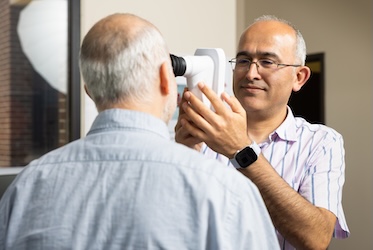
Kennesaw State researcher says there is a dark side to CEOs with high integrity
KENNESAW, Ga. | Nov 15, 2022
While organizations naturally want to have principled leaders, researchers have found a surprising twist that chief executive officers (CEOs) with high integrity can have negative effects on the companies they lead.

According to the study, recently published in the European Journal of Marketing, CEOs who have high degrees of integrity tend to negatively influence each of the three core dimensions of entrepreneurial orientation – innovativeness, proactiveness and risk-taking – traits synonymous with successful leaders.
“The influence of CEO integrity on corporate behavior is more profound than previously imagined,” said Prachi Gala, assistant professor of marketing in Kennesaw State’s Michael J. Coles College of Business, who co-authored the research with Saim Kashmiri of the University of Mississippi. “We are not suggesting that integrity is bad; rather, we are cautioning CEOs to understand how their personality traits, even something positive like integrity, can be a double-edged sword and negatively impact the organization.”
CEOs who have high integrity are not, however, doomed to fail. One of the most important things they can do to compensate is to surround themselves with a management team who are more creative, promotion-focused and willing to take risks.
According to Gala, there are also things that companies can do to encourage those high integrity CEOs to step outside of their comfort zones.
“Board members can encourage their CEOs to be more proactive by focusing on their training and by creating incentive systems, such as high CEO equity-pay ratios, that motivate them to be proactive in their marketing choices,” said Gala. “Also, firms with high customer orientation face less challenges in motivating CEOs with high integrity to be innovative in their decision making. The culture of focusing on customer welfare puts high internal pressure on CEOs to be innovative, risk-taking and proactive.”
The study, “Exploring the dark side of integrity: impact of CEO integrity on firms’ innovativeness, risk-taking and proactiveness,” analyzed more than 200 Fortune 500 companies’ stakeholder newsletters, annual reports and fiscal activities.
An expert on leadership behavior and consumer behavior, Gala is currently studying dark triad personalities to reveal CEO attitudes and its impact on corporate outcomes and consumer appeal. This summer, she will continue her research on why people are drawn to dark triad leaders during a fellowship at the Gordon Institute of Business Science at the University of Pretoria in South Africa.
Related Stories

Kennesaw State researchers earn National Institutes of Health grant to address diabetic eye care via technology

'Dynamic Duo' impact exercise science through undergraduate research at Kennesaw State

Kennesaw State students, C-suite executives of Student Managed Investment Fund soon to begin finance careers

Kennesaw State's Healthcare Management and Informatics program celebrates 10 years preparing workforce leaders
A leader in innovative teaching and learning, Kennesaw State University offers undergraduate, graduate, and doctoral degrees to its more than 47,000 students. Kennesaw State is a member of the University System of Georgia with 11 academic colleges. The university’s vibrant campus culture, diverse population, strong global ties, and entrepreneurial spirit draw students from throughout the country and the world. Kennesaw State is a Carnegie-designated doctoral research institution (R2), placing it among an elite group of only 8 percent of U.S. colleges and universities with an R1 or R2 status. For more information, visit kennesaw.edu.
















